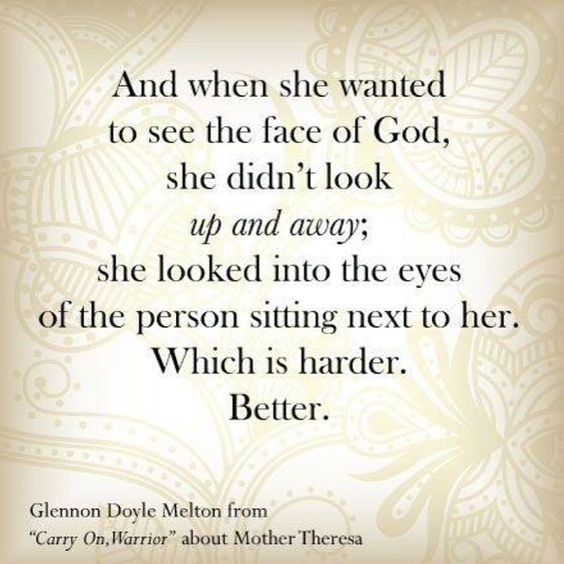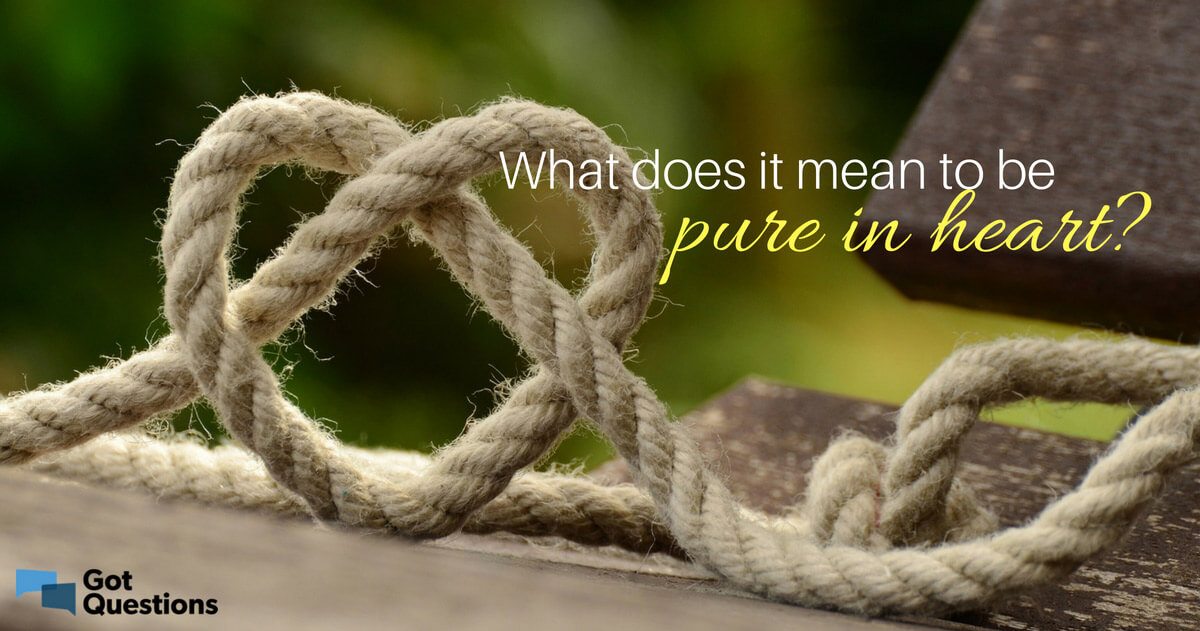Lenten Devotional-Sat, Mar 20: CHILDREN of GOD
All along, we’ve meditated on the idea that these blessings are given to all of us. That in this ‘upside down’ version of the Kingdom of God, people who might not have been recognized as being valuable, became significant in the sight of Christ and the eyes of God. It’s as true today as it was when these blessings were written down almost 2,000 years ago.
Of course, Jesus lived his life by demonstrating that the tenets of his own faith — Judaism — already prioritized compassion for people on the edges of a community: widows, orphans, strangers and others who could be overlooked due to their lack of status and power. He lived the values he had been taught by his own faithful parents. He modeled those values for his disciples.
What does that look like? He ate meals with outcasts who might be considered traitors to their own people, such as tax collectors who had authority but worked for an oppressive regime. He healed untouchables. He let questionable people come near to him, when his friends tried to keep them away. He fed people. He accepted invitations into the homes of socially-isolated folks. He argued with the best scholars and lawyers and spiritual teachers of his day. He picked rough working-class friends as his companions for the road. He found respite in the homes of women like Mary and Martha. He defended people accused of wrongdoing. He spent time with among people struggling with undiagnosed illnesses ranging from epilepsy to mental health conditions. He gave his time and attention to people who lived on the margins.
Jesus described, in the Beatitudes, people who lived on the outskirts of any community. By his recognition, he drew them—and continues to draw us—into the center of God’s kingdom.
To be called a peacemaker, and then to be embraced as a child of God, is to be welcomed into kinship and connection to a holy family. It is to be adopted and called beloved.
All of us, it is likely, have found ourselves living out one of these beatitudes or another. They aren’t an equation for how to live perfectly. They’re a description of the here-and-now, deep down in the raw reality of being human, and what that looks and feels like.
At some point, we have reflected one or more of these conditions. We have been hungry and passionate. We have been poor and stubborn. We have believed without reason and become desperate enough to let others help care for us. We have hoped when it was hard to go on. We have seen something holy and sacred in other people, even when it might be difficult. We have responded to hate with love, to discord with curiosity.
We’ve been amazing and strong and creative and compassionate. We have also messed up. We have, as often as not, gotten our living and loving wrong.
Yet the wonder of the blessing is that it isn’t offered to perfect practitioners of peace-making or the other characteristics described in the Beatitudes. Jesus doesn’t expect us to have everything all figured out. We don’t have to check off all the boxes or to qualify for some special degree of sainthood.
This blessing is for the peace-makers. It’s for people like you and me. People, like us, who are works-in-progress. We’re living our lives, imperfectly and messily, with a yearning for something more, a marrow-deep, soul-stirring desire to connect to Godself. We want more love than indifference, we want more peace and healing than hate and hurt.
You. Me. Us. We are the mixed-up, messed-up, trying-to-get-it-right children of God. — Rev Gail
MEDITATIONS:
I am to be loved, honored and respected solely because I exist … I am a beloved child of God after all. ― Emmanuella Raphaelle
As children of God, we are walking portals to the Divine, and the Kingdom of Heaven is within. ― Benjamin Decker
I do not stop being a child of God because I am a problem child. ― Bryan Chapell
Just because you are a child of God, that doesn’t mean you can act like a child. ― Robert Gilbert
Although claiming my true identity as a child of God, I still live as though the God to whom I am returning demands an explanation. I still think about his love as conditional and about home as a place I am not yet fully sure of … I keep entertaining doubts about whether I will be truly welcome when I get there … I am not yet able to fully believe that where my failings are great, ‘grace is always greater.’ ― Henri Nouwen
… no matter what I look like, where I live, or how much I have now, I am a princess. I am a daughter of the King of Kings! That’s true of every one of us who belong to God. We are … born ‘for such a time as this.’ … It means we’re uniquely positioned with our particular gifts, experiences, abilities, and limitations to do something further God’s kingdom here—in this place, at this time, and among these people. ― Sarah Christmyer
You will find that there is a mighty power, a non-exclusive, eternal dimension that actually can change your psychology, your joy of life; it can lift you up, give you a sense of self beyond anything you imagined to empower you to become that child of the universe, a child of God to whom … goodness can come. Take the time to seek … ― Theodore J. Nottingham
Challenge or Question: Can you use the symbolism of your own parent-child relationship to imagine being loved by Godself? If not, what sort of relationship have you experienced, that fully recognizes you and supports you as a valuable human being, in place of that image? Some suggestions might include: Teacher and student? Friend to friend? Coach with learner? Sponsor with twelve-step participant? If your parent-child relationship can hold up as an example of a loving model, then identify a time when you felt accepted by your family, even if you were not at your best?
Lenten Devotional – FRI, Mar 19: PEACEMAKER
Notice that in this blessing, those who receive it are those working toward peace. Even this state of being, whether internal or societal, has not yet been accomplished. The gift is offered to those who seek its achievement, if not in their own lifetimes, then in generations to come. They help build it up.
Perhaps we can best refer to the adage attributed to Lao Tsu when we consider the scope of how we strive for peace in our lives:
If there is to be peace in the world,
There must be peace in the nations.
If there is to be peace in the nations,
There must be peace in the cities.
If there is to be peace in the cities,
There must be peace between neighbors.
If there is to be peace between neighbors,
There must be peace in the home.
If there is to be peace in the home,
There must be peace in the heart.
All of us, at one time or another, need peace in our hearts, our homes and relationships, or within our communities. And most of us, at one time or another, have contributed to the possibility of knowing such peace, even for a period of time.
We are all, at some time and in some places, the peacemakers. — Rev GaiI
MEDITATIONS:
When I say it’s you I like, I’m talking about that part of you that knows that life is far more than anything you can ever see or hear or touch. That deep part of you that allows you to stand for those things without which humankind cannot survive. Love that conquers hate, peace that rises triumphant over war, and justice that proves more powerful than greed. — Fred Rogers
The first peace, which is the most important, is that which comes within the souls of people when they realize their relationship, their oneness with the universe and all its powers, and when they realize at the center of the universe dwells the Great Spirit, and that its center is really everywhere, it is within each of us. — Black Elk
Challenge or Question: What gives you peace?
Lenten Devotional – WED, Mar 17: SEE
As mentioned in the past few days, at the center of this blessing is the promise of perception and presence. Those who are pure in heart will see the face of God. By clearing away everything that would distract us, by becoming single-minded and whole-hearted, we grow more attentive and attuned.
Many commentators suggest that being pure of heart will help God’s followers experience God’s revelation all around them. As The Message paraphrases the Beatitudes, ‘You’re blessed when you get your inside world—your mind and heart—put right. Then you can see God in the outside world.’
Cynthia Bourgeault writes, ‘The heart in the ancient sacred traditions has a very specific and perhaps surprising meaning … an organ for the perception of divine purpose and beauty … our antenna … to orient us toward the divine radiance and to synchronize our being with its more subtle movements … for divine perception.’
She continues, ‘the physical world we take for our … time-and-space-bound reality is encompassed in another: a coherent and powerful world of divine purpose always surrounding and interpenetrating it. This other, more subtle world is invisible to the senses, and to the mind it appears to be pure speculation. But if the heart is awake and clear, it can directly receive, radiate, and reflect this unmanifest divine Reality.’
Some scholars expect to see God with their senses. To come into the presence of Godself. Yet according to tradition, Godself is veiled from us. We cannot fully behold God. Recall scriptures such as ‘looking in a mirror darkly’ at the reflection of God, with imperfect sight and perception, versus ‘seeing God face to face’. Only Moses, in Hebrew scriptures, could bear to look upon the unveiled face of God. The radiance of his experience made his own face become so bright that people couldn’t look directly on Moses when he came down the mountain.
While some commentators believe this blessing promises the chance to actually see God in person or to come into the presence of Godself. Others consider it a promise of spiritual companionship. Whitley Strieber suggests that the promise of the Beatitude is companionship with Godself.
One way or another, when we focus and grow mindful, we become more aware of God’s loving presence that has drawn close to us. We cannot come closer to God, except by opening ourselves and saying yes. If we simply consent, God will close the remaining distance between us., which may simply mean lifting the veils and barriers that have hidden Godself, even when God has been with us all along. We simply couldn’t see with the eyes of heart, until now. — Rev Gail
MEDITATIONS:
To love another person is to see the face of God. ― Victor Hugo
And when she wanted to see the face of God, she didn’t look up and away; she looked into the eyes of the person sitting next to her. Which is harder. Better — Glennon Doyle Melton from Carry On, Warrior about Mother Theresa
When the distorting instrument of the mind is made clear, we see life not as a collection of fragments, but as a seamless whole. We see the divine spark at the center of our very being; and we see simultaneously that in the heart of every other human being—in every country, in every race—though hidden perhaps by clouds of ignorance and conditioning, that same spark is present, one and the same in all. — Eknath Easwaran
The symbol of my prayer this day is the open heart. It is most natural for me to think of prayer in terms of the open hand. My needs are so great and often so desperate that there seems to be naught besides my own urgency. I must open my heart to God. This will include my own deep urgencies and all the warp and woof of my desiring. These things, deep within, I must trust with the full awareness that more important even than self-realization is the true glorifying of God. Somehow I must make God central to me and in me, over and above the use to which I wish or need to put His energy and His power. — Howard Thurman (prayer)
Challenge or Question: Where do you experience God’s self-revelation in the world?
Lenten Devotional – Week 4
Matthew 5: 7-8
“Blessed are the pure in heart, for they will see God.”
“Blessed are the peacemakers, for they will be called children of God. ”
SUNDAY, Mar 14: BLESSED
Some translators use the word ‘happiness’ as another meaning for ‘blessed.’ As if the blessing confers a state of happiness upon those who have been named.
Yet in the upside-down world of the Beatitudes, often those who are named as blessed are also those grappling with complex personal and societal challenges. They’re living in or addressing poverty. They’re naming weaknesses and faults and vulnerabilities. They’re facing injustice and oppression. They’re living in times of lack and inequality. Happiness would seem a far-off state of being.
In this week’s Beatitudes, the blessing falls on those who are pure of heart and those who choose peace. These are not people basking in contentment and easy living. These are people who are walking the Way in the midst of extremes. They’re choosing love over hate. They’re choosing a path of resistance and nonviolent revolution. They’re addressing personal problems and societal wrongs.
‘They’ is also ‘us.’ Remember, we’re often the folk who strive for such values. We want to live by these ideals of purity and peace-making. At our best, we act and speak in support of these characteristics.
Yet we know that we often don’t feel pure. Or peaceful. Or happy.
We fall short. Our hearts fall short. The world falls short. Rather than feeling happy, we’re disappointed. Frustrated. Angry. Afraid.
Perhaps it’s more helpful to use the word ‘joy’ rather than ‘happiness’ as the promise of ‘blessedness’. Happiness is like weather: fleeting and seasonal. Always-changing. Joy is the sky: deep and eternal, unaffected by the winds and rains, because it springs from a deeper, higher place. How else do we explain accessing humor, peace, hope, and joy in the hardest, most life-threatening times? Abiding joy is there: growing, rising, connecting us to the sacred love of God.
Yet in our daily living, we’re more aware of the weather than the sky behind it. We feel the immediate effects of emotions and circumstances, and question the blessing.
We’re susceptible to changing conditions. Being blessed — or happy — may not seem like a tangible, deliverable, real promise. A state of being available to us, here and now. Most of the time, we’ll struggle to imagine how the conditions named in the Beatitudes can lead to a blessing.
After all, we fall short of deserving such gifts. How can they possibly be true? That’s the beauty of the Beatitudes. Instead of asking us to be perfect, the Beatitudes bless us as we are: bundles of hope, desire, and aspiration. We’re full of potential, but we’re definitely not idealized versions of humanity.
The One who blesses us, also recognizes the value of our hunger. Our yearning. Our motivation. Our turning toward God. Our almost-honesty. Our love-seeking selves. Our desire to do what’s right. Our longing for peace.
By now, the Beatitudes have modeled for us, over and over, that we’re usually in a position to need more than we can give. We’re broken open. It’s that vulnerability that permits us to receive what is offered.
We are enough, just as we are. Beloved. Chosen. Claimed. Adopted. Welcomed. Wanted. As humans, we may reflect each of these Beatitudinal conditions and characteristics at different times in our lives. God will work through us, imperfect as we are, if we simply receive the blessing of love being poured out for us. — Rev Gail
MEDITATIONS:
Blessed is the influence of one true, loving human soul on another. — George Eliot
I’m blessed and I thank God for every day for everything that happens for me. — Lil Wayne
Blessed are those who give without remembering and take without forgetting. — Elizabeth Bibesco
Life is filled with tragedy, with long patches of struggle and with, I think, beautiful bursts of joy and accomplishment. Blessed with those moments, you just try to relax as much as possible and focus on the little things, like the joy of changing your baby’s diaper. — David Dastmalchian
Challenge or Question: Identify a blessing within your life. One aspect of your life for which you are grateful. Give thanks for it. Say a prayer, write it in a journal, or light a candle to acknowledge this blessing.


